Syrie et Turquie Mise à jour
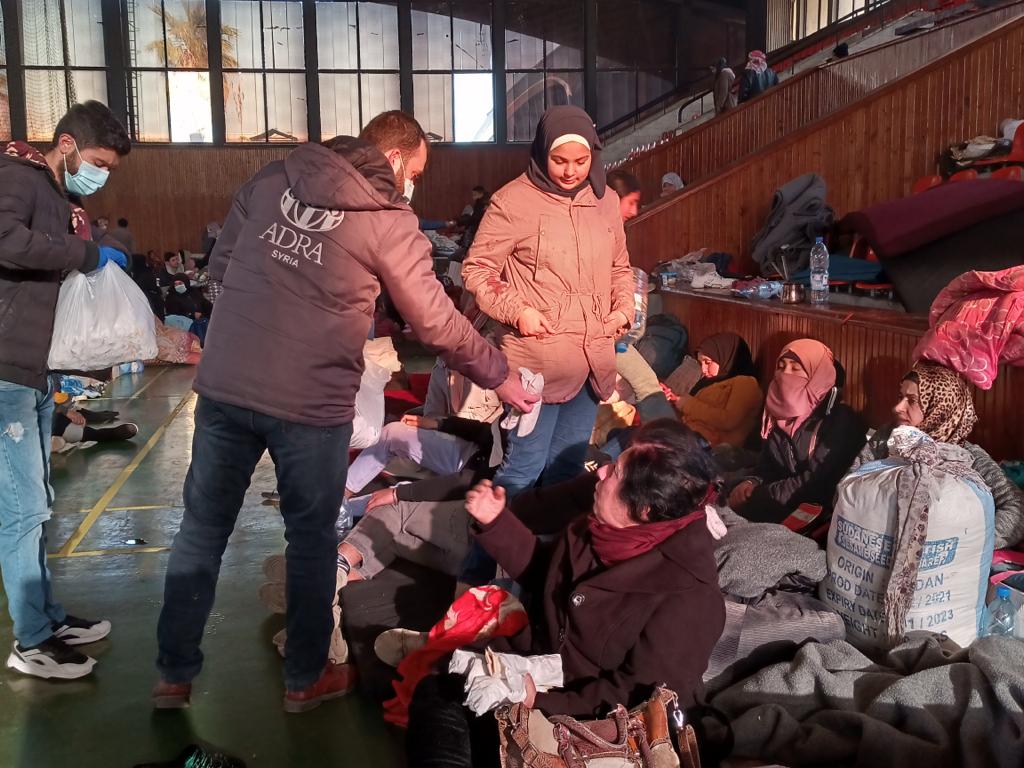
Plus tôt cette année, le tremblement de terre qui a secoué la Syrie et la Turquie a laissé le monde sous le choc et secoué. Déjà soumises à des violences prolongées depuis de nombreuses années, les communautés syriennes ont vu leurs problèmes s'aggraver à mesure que les luttes existantes se heurtaient à de nouvelles. Pour certaines familles, les fils souffrant de blessures graves et les problèmes de santé subis pendant les combats ont compliqué le processus de fuite des maisons en ruine et de voyage à travers la ville pour trouver un nouvel abri. Pour d’autres, les conséquences économiques de la longue guerre ont laissé des ménages très nombreux avec un seul soutien de famille.
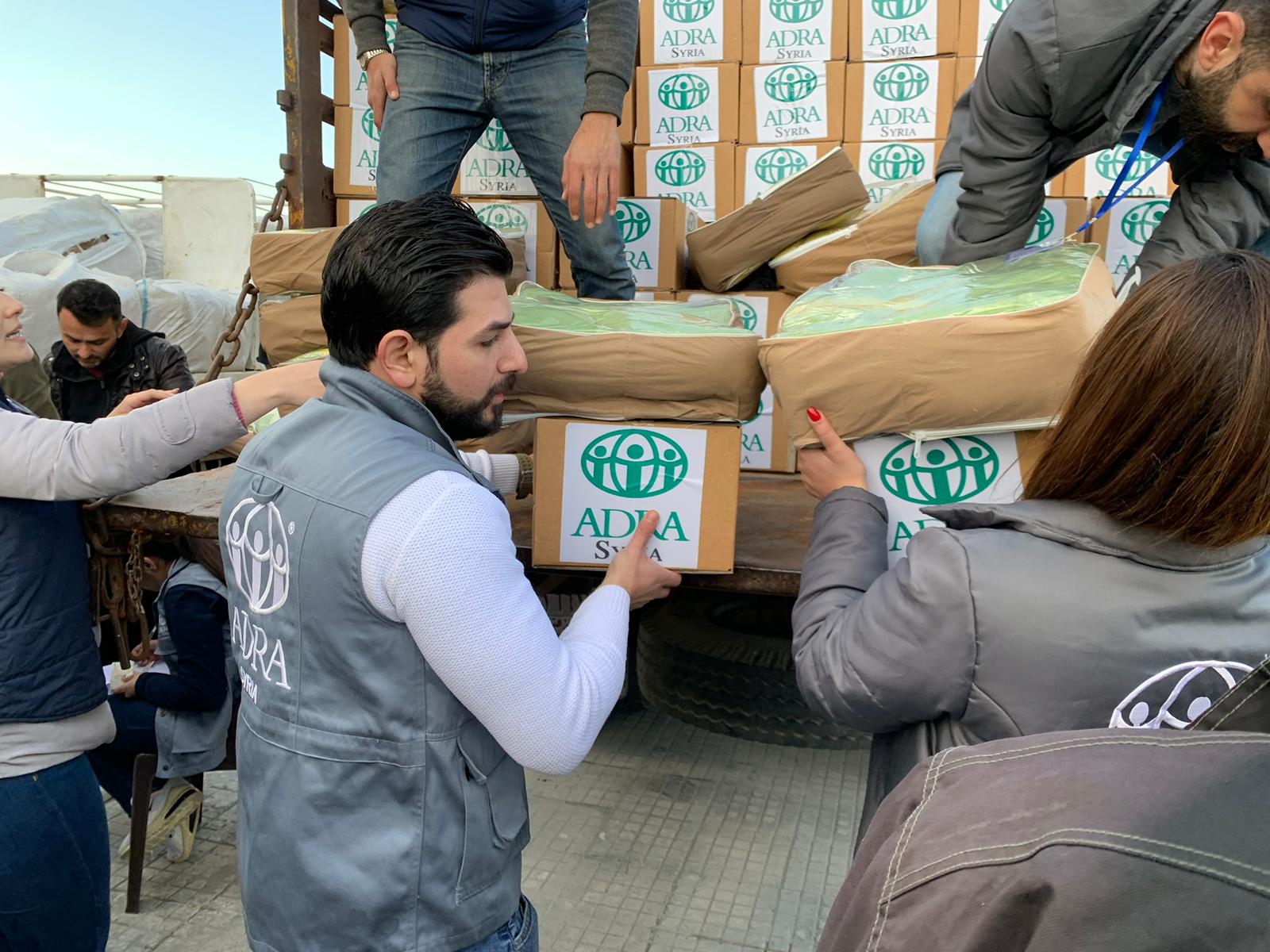
Au milieu de ces tragédies, ADRA Canada et ADRA Syrie sont intervenues pour apporter leur aide. La première réponse à la catastrophe a consisté à répondre au besoin le plus élémentaire de ceux qui se reposaient dans des abris collectifs : la nourriture. En se concentrant sur Alep et Lattaquié, ADRA a distribué des paniers de nourriture et des repas à ceux qui en avaient besoin. En seulement trois jours, les personnes déplacées à Lattaquié ont reçu 3 500 repas, et environ 1 360 ont été distribués à Alep. Différents types de colis alimentaires étaient disponibles pour les familles se trouvant dans différentes situations. Certains étaient livrés avec des articles prêts à manger, tandis que d'autres contenaient des aliments secs pouvant être cuisinés (comme du riz ou des pâtes) pour ceux qui se trouvaient dans des endroits disposant de capacités de cuisine. Entre-temps, ADRA a fourni un générateur à la direction des ressources en eau de Lattaquié. Les infrastructures hydrauliques ont été gravement endommagées lors du tremblement de terre et le générateur a joué un rôle important dans les travaux de réparation de ces infrastructures.
Au fil de l’année, les travaux de redressement ont progressé péniblement – avec détermination, mais à certains égards, lents. Il ne faut pas sous-estimer l’ampleur des dégâts et des effets qui en résultent : il s’agit d’une catastrophe massive qui a touché des millions de personnes.
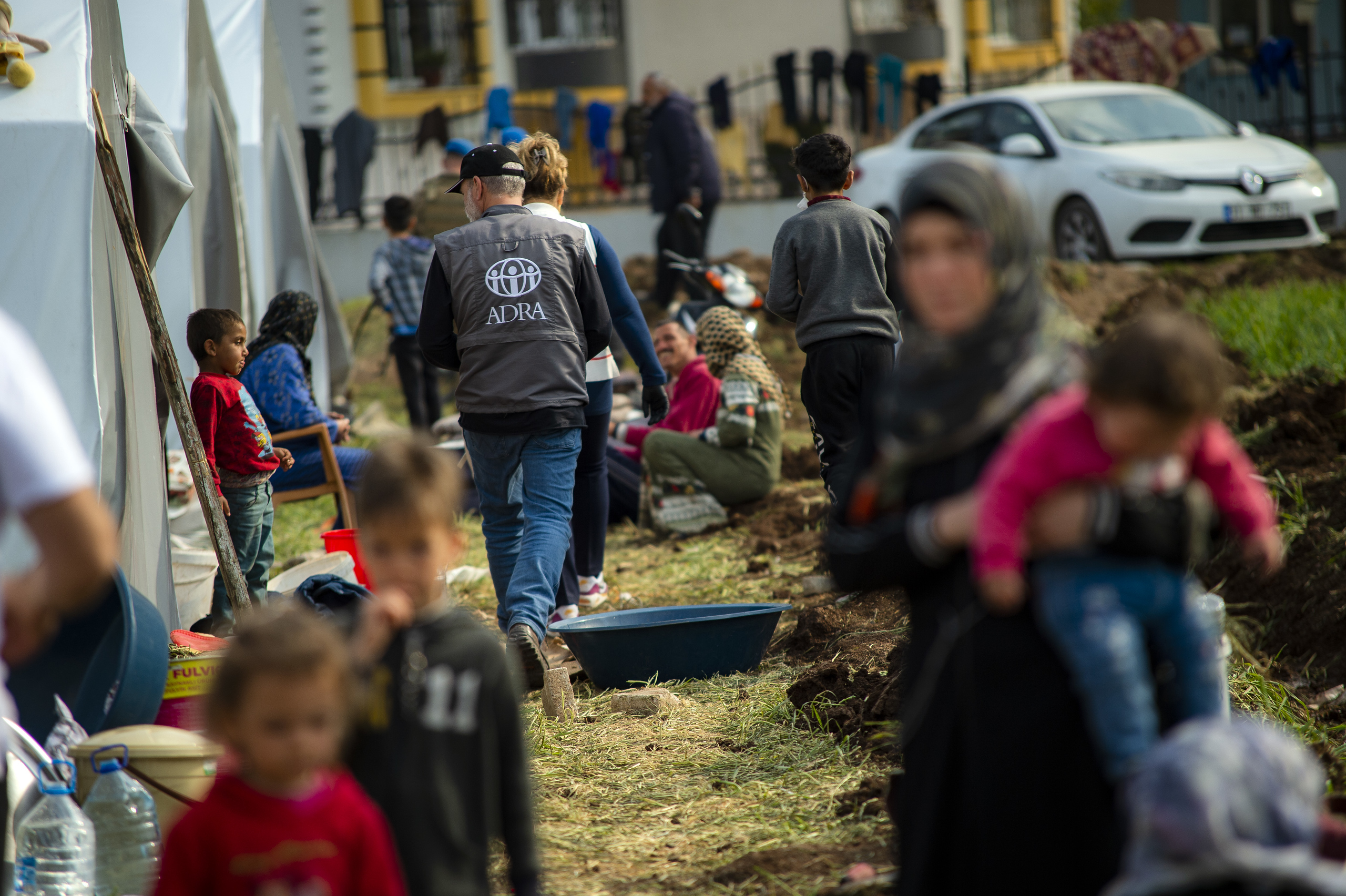
Alors qu’ADRA a collecté les rapports des familles que nous avons aidées, il y a un mélange d’émotions inquiétantes. La gratitude inonde ceux qui ont reçu de la nourriture d'ADRA, beaucoup d'entre eux exprimant que leurs familles n'auraient pas pu s'en sortir sans cette aide. Dans le même temps, ces mêmes personnes déplacées ont remis en question la manière dont ADRA calcule ses parts.
Les colis alimentaires livrés par ADRA ont été conçus pour fournir suffisamment de nourriture séchée et en conserve pour une famille entière pendant cinq jours. La réalité est parfois obstinément difficile à calculer. Dans ce cas, il n’existe pas de famille de taille « standard » ou « normale ». Les familles sont de toutes formes et de toutes tailles, surtout lorsqu’elles sont confrontées à des circonstances de survie désastreuses. Le résultat, dans de nombreux cas, a été que les familles ont dit : « Merci beaucoup d'avoir nourri ma famille, mais en passant, je ne pense pas que vous réalisiez à quel point ma famille est grande. »
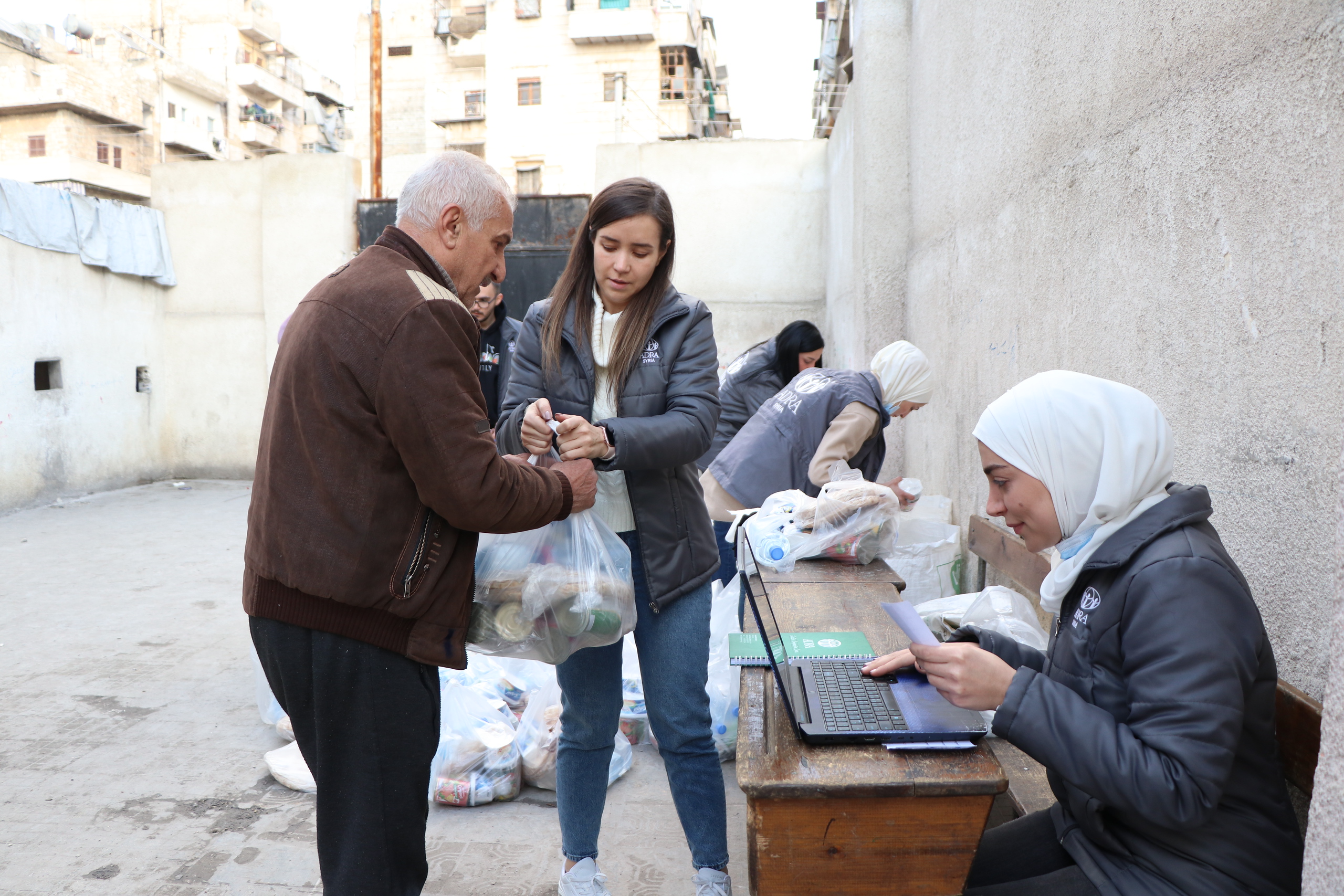
Nous avons été confrontés à une réalité similaire cette année en Somalie. L'aide financière et alimentaire destinée à aider une famille à certains moments ne tenait pas compte de l'ampleur avec laquelle le terme « famille » serait appliqué par les participants au projet. Dans de nombreux contextes d’Afrique et du Moyen-Orient, la culture de l’hospitalité et du partage communautaire des ressources et des biens est si forte qu’elle défie les modes de comptage occidentaux. Et bien sûr, certains ménages sont tout simplement très grands.
Fawza, une mère de 50 ans, a partagé son point de vue sur les paniers alimentaires avec ADRA. « Le panier fourni par ADRA dure généralement quatre jours. Je peux tolérer la faim, mais je ne pourrai jamais accepter de voir mes enfants affamés et de ne pas pouvoir les nourrir. » Ce n’est pas inconnu. Dans des situations d'insécurité alimentaire, nous avons vu des parents renoncer à des repas pour donner la priorité à l'alimentation de leurs enfants. Ce n’est pas idéal, mais cela témoigne de la compassion que les parents éprouvent envers leurs enfants et, de cette façon, cette compassion détermine leurs priorités.
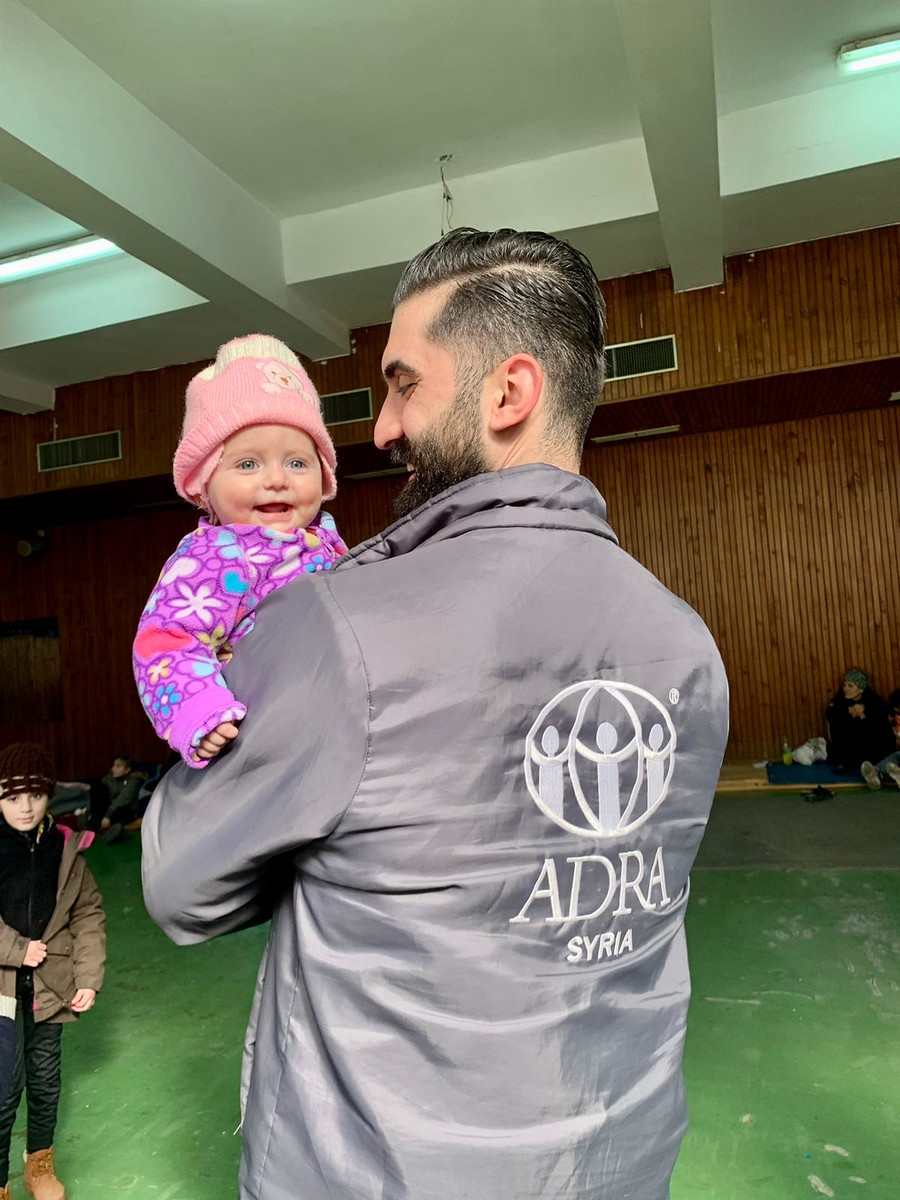
Les personnes participant aux projets d'ADRA sur le terrain dans ces sites sinistrés envoient un message très clair aux donateurs d'ADRA : « Nous sommes aussi des donateurs. » La générosité de ceux qui vivent dans le besoin ne fait que renforcer le fait qu’il reste encore beaucoup de travail à faire et que jusqu’à ce que le travail soit terminé, la seule façon d’avancer passe par l’esprit de générosité. C'est peut-être un défi ou un défi ; peut-être que les personnes qui auraient traditionnellement été qualifiées de « bénéficiaires » exigent d’être considérées comme des donateurs eux-mêmes, des donateurs eux-mêmes et des partenaires de ceux d’entre nous qui font des dons. Lorsqu'une famille dans un refuge collectif en Syrie ou un ménage en Somalie manque de nourriture « tôt » parce qu'ils ont décidé de donner la priorité à la définition de la famille donnée par leur culture plutôt qu'à la définition de la taille des portions donnée par une ONG, cela nous rappelle que nous ne sommes pas des héros qui sauvent. des gens impuissants, mais des partenaires qui donnent aux agents moraux capables de décider comment guérir.
À cet égard, cela renforce l'engagement d'ADRA Canada envers notre valeur de longue date – permettre aux gens de se sortir de la pauvreté.
Jusqu’à ce que le travail soit terminé, en Syrie et partout ailleurs, que l’esprit de générosité continue à nous faire avancer, jusqu’à ce que tous puissent vivre comme Dieu l’a prévu.
ADRA cherche de l'aide pour Fonds d'urgence afin que nous puissions intensifier encore notre intervention et apporter notre aide là où elle est le plus nécessaire.
Faisons la différence ensemble !
Nouvelles et histoires connexes
- Communiqués de presse, Histoires
- Communiqués de presse
- Communiqués de presse, Histoires
- Communiqués de presse, Histoires